Resources
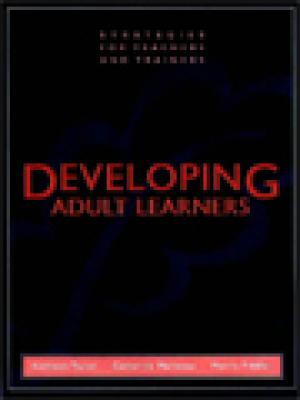
Developing Adult Learners highlights the powerful and compelling voices of teachers and students who have discovered the excitement of growing and changing through learning. It is full of pragmatic advice for faculty members, part-time instructors, workplace educators, leadership trainers, and virtually anyone dedicated to helping adult learners achieve rich and rewarding experiences. (From the Publisher)
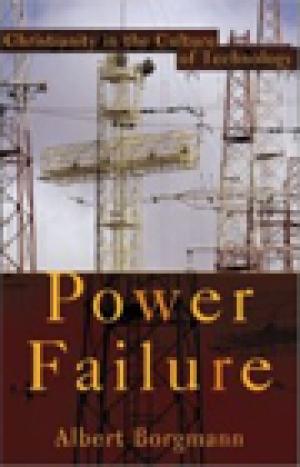
We live in a culture defined and sustained by technology. Usually we equate this access to technology with opportunity, affluence, even happiness: the good life. Albert Borgmann's Power Failure raises some crucial, if disconcerting, questions: If technology liberates us, exactly what kind of liberation does it promise? Do we really feel free? Are we prospering, and by what definition? Borgmann looks at the relationship between Christianity and technology by examining some of the invisible dangers of a technology-driven lifestyle. Specifically, he points out how devices and consumption have replaced physical things and practices in everyday life. Power Failure calls us to vigorous Christian practice in a technological age. These practices include citizen-based decision making, communal celebrations, and a vital connection with the table and the word through daily shared meals and the discipline of reading. Examining the influences that shape people, this unique and insightful text will appeal to anyone interested in technology, philosophy, or cultural critique. Chapters include The Moral Significance of the Material Culture, Contingency and Grace, Power and Care, and The Culture of the Word and the Culture of the Table. (From the Publisher)
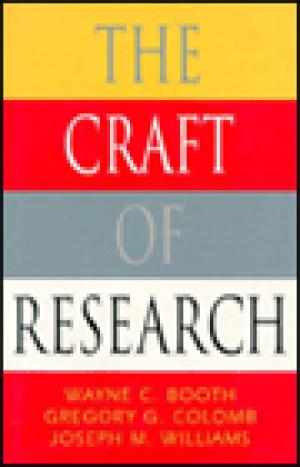
Here's a concise, practical guide to mastering the art of research. Filled with the tested strategies and expert advice of three distinguished scholars, this book helps you plan, carry out, and report on research in any field, at any level - a term paper, a dissertation, an article, or a book. The Craft of Research is about more than the mechanics of fact gathering: it's a unique introduction to doing research effectively. Clearly written and easy to use, it teaches the skills that are essential to the success of any research project. Wayne Booth, Gregory Colomb, and Joseph Williams chart every stage of the research process, from finding a topic and generating research questions about it to marshalling evidence, constructing arguments, creating a first draft, and revising that draft for a final report that meets the needs of a community of readers. (From the Publisher)
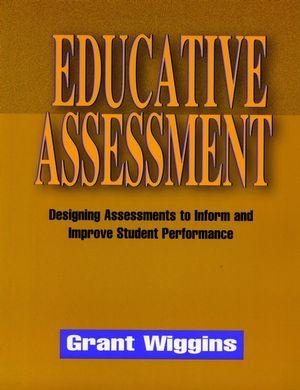
In this book, Grant Wiggins outlines design standards for performance-based assessments that promise students - no matter what their ability - clear and worthy performance targets, useful feedback, coaching, and the opportunity to progress toward excellence. Educative Assessment furnishes the information needed to design performance-based assessments, craft performance tasks that meet rigorous educational standards, score assessments fairly, and structure and judge student portfolios. It also shows how performance assessment can be used to improve curriculum and instruction, grading, and reporting, as well as teacher accountability. In addition, the book includes numerous design templates and flowcharts, strategies for design and troubleshooting, and myriad examples of assessment tasks and scoring rubrics that Wiggins has developed and repeatedly refined using feedback from clients in schools, districts, and state departments of education. (From the Publisher)
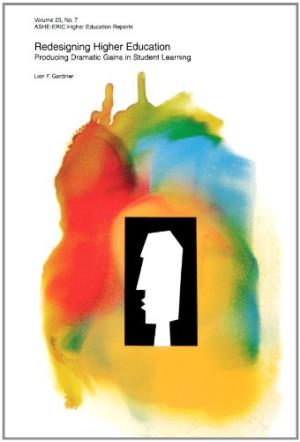
Scrutinizes the theoretical links between critique and prescription. Examines the growing wisdom on student learning, college outcomes, and different options for instruction and assessment. (From the Publisher)
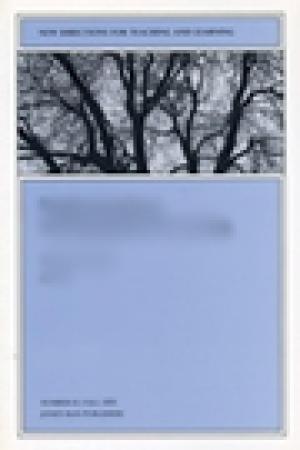
Self-regulated learning is an important new area of research on college learning and teaching. The purpose of this volume of New Directions for Teaching and Learning is to provide a sampling of some of the central issues regarding self-regulated learning in college courses and classrooms. These issues include the definition of self-regulated learning, how to improve students' self-regulated learning, and how faculty can use the ideas from this research to improve their own teaching. The chapters in this volume reflect current research and thinking about self-regulated learning for college students. While more research and development is needed on this topic, the authors provide an immediate context for efforts to improve college learning and teaching. This is the 63rd issue of the quarterly journal New Directions for Teaching and Learning. (From the Publisher)
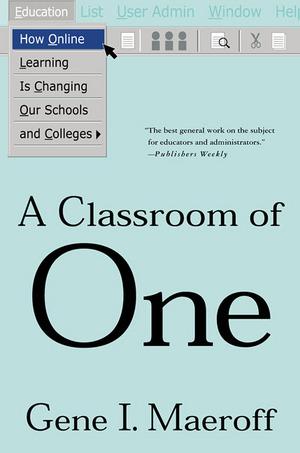
This is Gene Maeroff's "report from the front" on the short history and status of online learning in the United States and around the world. Maeroff is a reporter who takes you to the schools from Penn State's World Campus to the Florida Virtual School to the newly emerging online learning initiatives in Afghanistan. His journey ultimately provides a snapshot of the way in which technology is changing the minds of people with regard to the nature of higher education. He looks at the method of electronic delivery, the quality of the information being delivered and quality of interaction it engenders. He looks at the way learners are adapting to this new technology and how much responsibility is put on the student's shoulders. Finally, and maybe tellingly, he looks at the business of online learning. (From the Publisher)
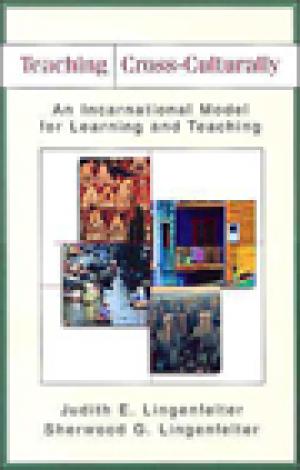
How can Christian educators teach effectively in different cultures? Here are winning principles drawn from educational theory and personal experience. How can Christian educators teach effectively within a culture not their own? In what sense is teaching part of the Great Commission? These questions are being asked more and more often in our increasingly global community. In the opening chapter of Teaching Cross-Culturally, Judith Lingenfelter recounts two contrasting teaching experiences she had early in her career. First, she taught junior high students in a rough urban setting near Pittsburgh. Next, she taught elementary students at a school on the small island of Yap in the western Pacific. Both experiences, she discovered, were examples of cross-cultural teaching. Teaching Cross-Culturally is designed to complement Sherwood Lingenfelter's highly successful Ministering Cross-Culturally. It takes similar insights and applies them specifically to an educational setting. It also guides readers with little understanding of cross-cultural challenges in ministry and helps them see how cultural sensitivity and effective teaching are inseparably linked. Chapters include discussions about how to uncover cultural biases, how to address intelligence and learning styles, and teaching for biblical transformation. Teaching Cross-Culturally is ideal for the western-trained educator who plans to work in a non-western setting. Missionaries, "tentmakers, " and those who teach in an increasingly multicultural North America will find this book helpful. (From the Publisher)
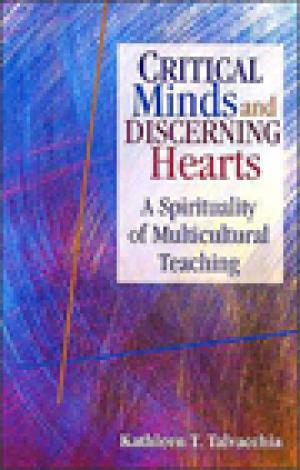
This book goes beyond the "how-to's" of teaching to offer a pedagogy founded in spirituality, providing teachers with the elements necessary to create a truly multicultural classroom. (From the Publisher)
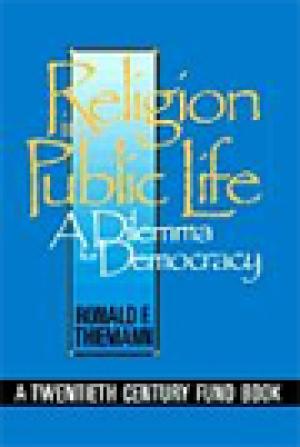
Prayer in public schools, abortion, gay and lesbian rights - these bitterly divisive issues dominate American politics today, revealing deep disagreements over basic moral values. In a highly readable account that draws on legal arguments, political theory, and philosophy, Ronald F. Thiemann explores the proper role of religious convictions in American public life. He proposes that religion can and should play an active, positive part in our society even as it maintains a fundamental commitment to pluralist, democratic values. Arguing that both increased secularism and growing religious diversity since the 1960s have fragmented commonly held values, Thiemann observes that there has been an historical ambivalence in American attitudes towards religion in public life. He proposes abandoning the idea of an absolute wall between church and state and all the conceptual framework built around that concept in interpreting the First Amendment. He returns instead to James Madison's views and the Constitutional principles of liberty, equality, and toleration. Refuting both political liberalism (as too secular) and communitarianism (as failing to meet the challenge of pluralism), Thiemann offers a new definition of liberalism that gives religions a voice in the public sphere as long as they heed the Constitutional principles of liberty, equality, and toleration or mutual respect. The American republic, Thiemann notes, is a constantly evolving experiment in constructing a pluralistic society from its many particular communities. Religion can act as a positive force in its moral renewal, by helping to shape common cultural values. All those interested in finding solutions to today's divisive political discord, in finding ways to disagree civilly in a democracy, and in exploring the extent to which religious convictions should shape the development of public policies will find that this book offers an important new direction for religion and the nation. (From the Publisher)